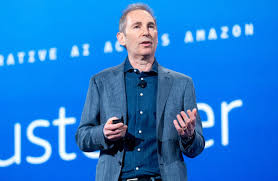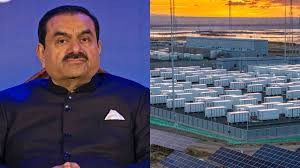Amazon CEO Issues Stark Warning on AI-Led Job Cuts: “We Will Need Fewer People in the Future”

IIE DIGITAL DESK : Amazon CEO Andy Jassy has sparked intense global debate by warning that the rise of artificial intelligence (AI) will inevitably lead to job reductions across many industries—including within Amazon itself. Speaking at a recent internal company event, Jassy addressed both the promise and peril of AI integration, declaring, “We will need fewer people to do some of the same tasks.”
Though unsurprising in the context of rapid AI development, marks one of the most direct acknowledgments from a top tech executive that automation and generative AI could fundamentally reshape the modern workforce—not just enhance it.
Jassy’s remarks came during a discussion on Amazon’s future strategies and operational models, where he emphasized how AI and machine learning are becoming central to Amazon’s business operations, from logistics and customer service to software development and supply chain management. While acknowledging the vast potential of AI to improve productivity, reduce error, and optimize efficiency, Jassy did not shy away from its social implications.
“Some of the roles that exist today simply won’t be necessary tomorrow,” he stated. “With the kind of transformation AI is enabling, we are going to see massive shifts in how work is done—and who does it.”
Amazon has already been one of the most aggressive adopters of automation technology. In its sprawling warehouse networks, robotics and machine-learning systems are increasingly handling everything from item sorting and packaging to inventory management. The introduction of AI-powered customer service tools, delivery route optimization algorithms, and even code-generating AI assistants for internal use shows the extent to which the company is embedding artificial intelligence into its core functions.
The latest developments in generative AI, including tools like Amazon's own Bedrock and investments in Anthropic, have taken automation a step further. These systems can now handle complex tasks that previously required human intelligence—writing content, analyzing contracts, summarizing data, and even basic design.
While Amazon’s technological leap forward may benefit shareholders and streamline operations, Jassy’s comments raise urgent concerns about the human cost. Amazon employs over 1.5 million people worldwide, a significant portion of whom are in roles that are potentially vulnerable to AI disruption—such as data entry, customer service, and warehouse operations.
Labor rights advocates and economists warn that such transitions, if not handled thoughtfully, could lead to massive job displacements, increased income inequality, and social instability. Critics also point to Amazon’s previous history of high turnover rates and harsh working conditions, arguing that further automation may lead to greater worker alienation or exploitation before meaningful policies can catch up.
Jassy insisted that the company is committed to reskilling and redeployment, suggesting Amazon will offer opportunities for workers to transition into new roles created by the AI economy. “We believe in equipping our employees for the future,” he said, highlighting Amazon’s past investments in training programs like Machine Learning University and AWS Skill Builder.
Some argue that just as past industrial revolutions eventually created more jobs than they destroyed, AI could spawn entirely new professions. Others are less optimistic, pointing to the unprecedented speed and scale of AI’s rise as a threat to stable employment structures.
The broader tech industry appears to be grappling with the same dilemma. From Google and Microsoft to Meta and IBM, major corporations have already cut thousands of jobs in recent months, often citing “efficiency” and “AI restructuring” as driving forces.
As the global workforce stands on the brink of what many call the fourth industrial revolution, Andy Jassy’s blunt message adds a sobering dose of realism. AI will unlock immense potential—but at a real and immediate cost to traditional employment. What remains uncertain is whether society, policymakers, and companies like Amazon are ready to confront that cost.
You might also like!
















